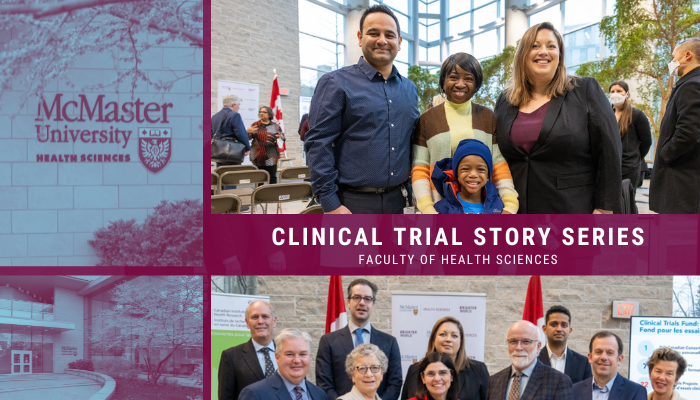McMaster researcher trials less invasive ventilation for seriously ill patients

Kim Lewis is behind one of seven McMaster-led research projects that have received a total of $61 million from the Canadian Institutes of Health Research (CIHR) to advance medical research, training and innovation.
McMaster University researcher Kim Lewis is receiving $3.7 million in federal funding to test a better method of ventilation for people in hospital with life-threatening breathing difficulties.
Lewis says that using a drug called dexmedetomidine can help relax patients and reduce pain, while not affecting breathing for people needing non-invasive ventilation (NIV) in the intensive care unit (ICU). Other similar medications can slow down breathing and cannot be used unless a breathing tube is inserted.
While 12 small-scale studies have shown that dexmedetomidine helps people to tolerate NIV, Lewis said further investigation is needed to definitively prove whether or not the drug can help people in the ICU and prevent the need for mechanical ventilation.
“Patients can find NIV hard to tolerate because the mask is tight-fitting, the air pressure can make breathing uncomfortable, and air being pushed into the stomach can cause nausea and vomiting,” said Lewis, a critical care physician and an assistant professor of the Department of Medicine.
She said that people cannot tolerate NIV, the only alternative is inserting a breathing tube and using mechanical ventilation, which is a machine that takes over breathing, until the lungs recover.
“Using the breathing tube and mechanical ventilation instead of NIV increases the chance that people will die in the ICU, develop lung infections, experience muscle weakness and have a longer hospital stay,” said Lewis.
The funding for Lewis’s project was announced by the Canadian Institutes of Health Research (CIHR) and Filomena Tassi, Minister of the Federal Economic Development Agency for Southern Ontario on Jan. 19, as part of the Government of Canada’s new clinical trials consortium, training platforms and research to improve the health of Canadians.
Related stories:
McMaster researchers receive $61 million from CIHR to advance health research
